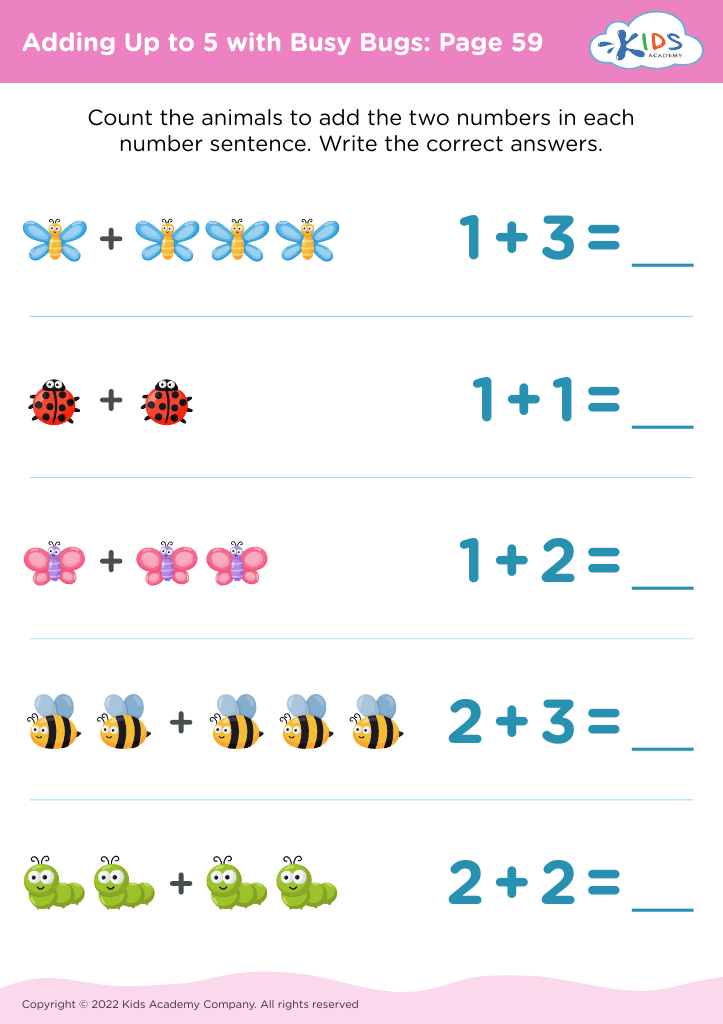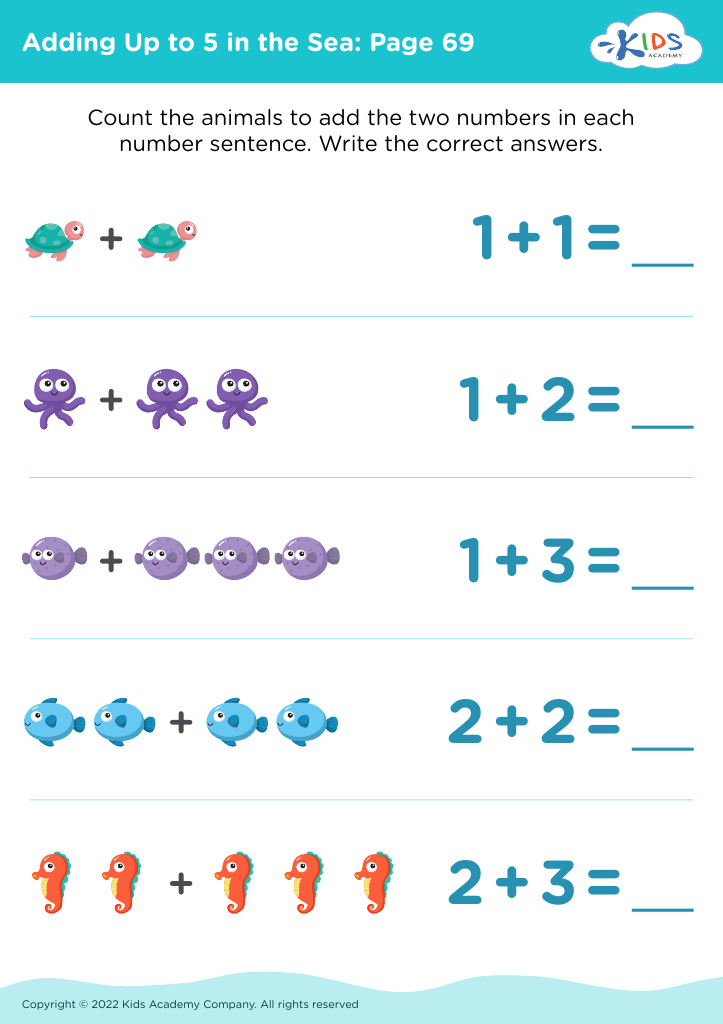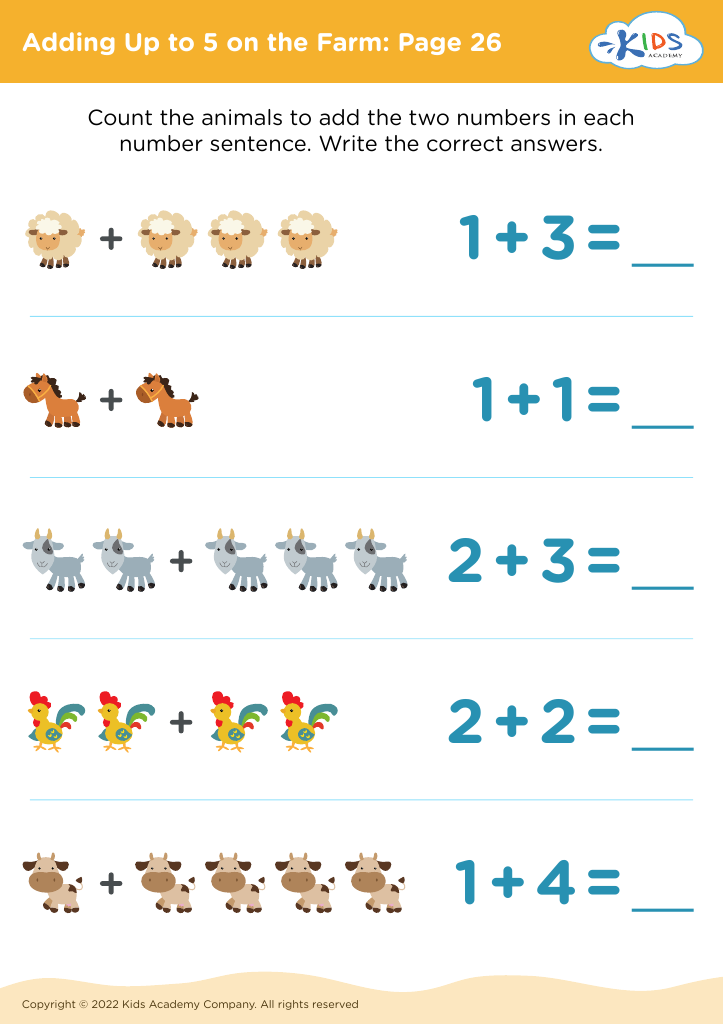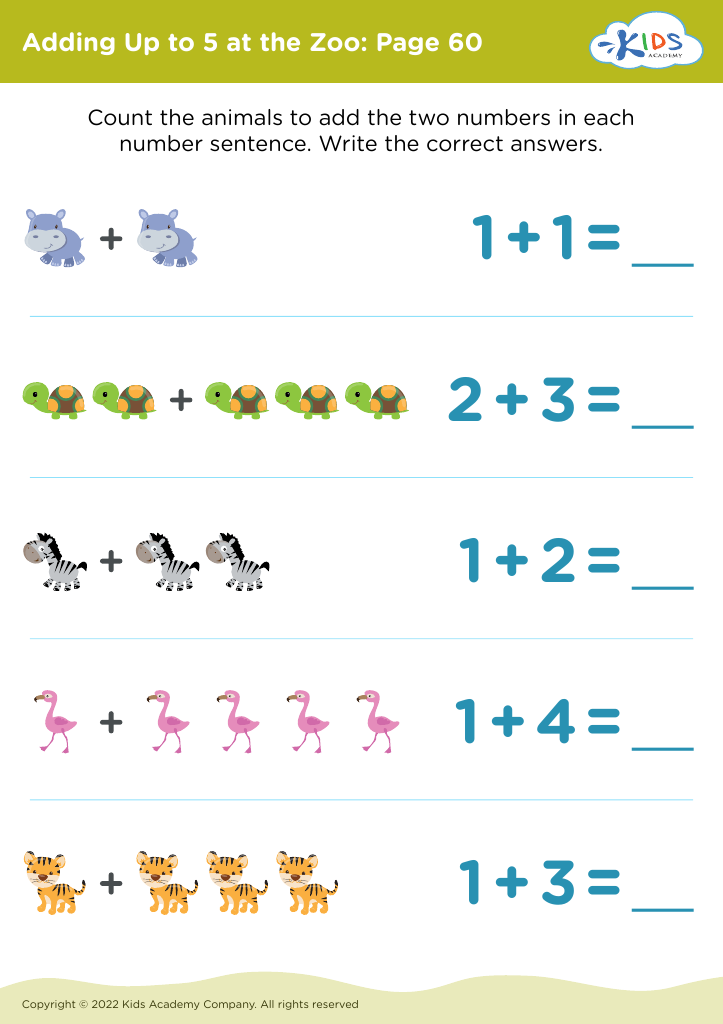Addition up to 5 Math Worksheets for 5-Year-Olds
4 filtered results
-
From - To
Unlock early math skills with our "Addition up to 5 Math Worksheets for 5-Year-Olds." These engaging, age-appropriate printable worksheets are designed to make math fun and accessible. Each worksheet offers colorful visuals and hands-on activities to help young learners practice simple addition. Perfect for classroom use or at-home learning, our worksheets support the development of foundational math skills, providing a solid starting point for future math success. Build confidence and foster a love for math in your child or student with Kids Academy's expertly crafted resources. Download now and watch them thrive!
Parents and teachers should care about teaching addition up to 5 to 5-year-olds because it forms the foundation of mathematical understanding and critical thinking. Early exposure to basic addition helps children develop number sense, which is the ability to understand numbers and their relationships. This foundational skill is crucial for their future educational journey, especially in subjects requiring logical processing and problem-solving.
Developing these skills not only equips children with essential math abilities but also enhances their cognitive development. Activities such as counting objects, using fingers, or playing with educational toys make learning addition enjoyable and engaging. By focusing on addition up to 5, children are introduced to concepts like counting on, the composition of numbers, and basic arithmetic operations, which are essential building blocks for more complex math topics.
Parents and teachers play a pivotal role in creating positive learning experiences. Engaging children in math activities at an early age increases their confidence and curiosity, fostering a positive attitude toward learning in general. Mastery of simple addition sets the stage for academic success and everyday problem-solving abilities, making it essential for parents and teachers to prioritize this aspect of early childhood education.

















